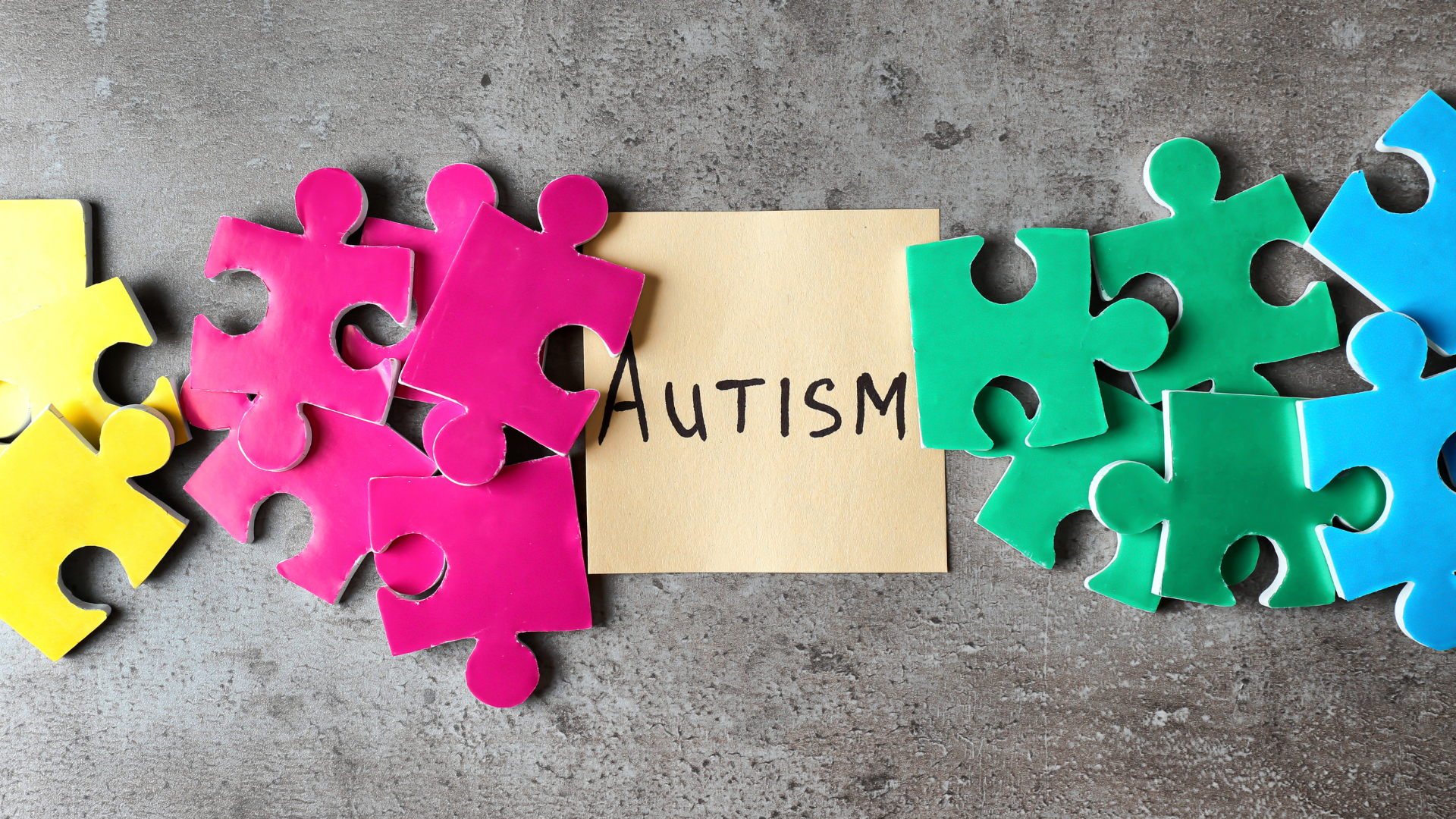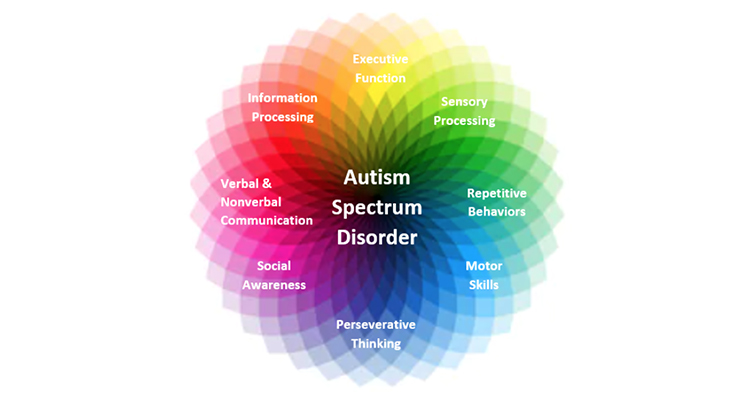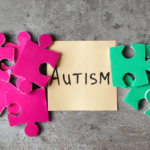The Connection Between Autism and Video Game Addiction
In 2020, the CDC reported that 1 in every 54 children is diagnosed with autism spectrum disorder (ASD). Boys are also four times more likely than girls to be diagnosed with this condition. There are three levels of autism, each with a varying degree of symptoms and severity. Common symptoms associated with ASD include behavioral disturbances, poor eye contact, inappropriate social interactions, and abnormal tone of voice and speech.

Individuals with ASD are at higher risk of developing other behavioral and health issues including depression, anxiety, insomnia, obsessive-compulsive disorder (OCD), attention-deficit/hyperactivity disorder (ADHD), and epilepsy. Research shows that those with ASD are also prone to addictive behaviors, including video game addiction.
Playing video games is a preferred pastime for billions of people of all ages and genders. Unfortunately, what starts as a form of entertainment can quickly spiral into a debilitating addiction. Studies suggest that children with ASD are more likely to develop an addiction to video games than those who don’t have this diagnosis.
Here we’ll explore exactly what autism spectrum disorder is, why individuals with ASD are drawn to video games, and how to address addictive symptoms and behaviors.
Content
What is Autism Spectrum Disorder?
Autism spectrum disorder (ASD) is a developmental disorder that can cause significant social, behavioral, and communication delays and challenges. People with ASD don’t appear physically different from their peers. Instead, they communicate, behave, learn, and interact differently than most people. These skills normally range from severely challenged to gifted, which means some people with ASD have the potential for high achievement while others need constant support and intervention.

Diagnosing ASD includes several conditions including autistic disorder, Asperger syndrome, and pervasive developmental disorder not otherwise specified (PDD-NOS). All of these conditions fall on the autism spectrum disorder (ASD). Diagnosing this condition isn’t always easy since there’s no blood test or medical test available. Instead, a doctor will examine the patient’s developmental history and behavior when making a determination. Most diagnoses are made during childhood, as communication and developmental delays, as well as behavioral issues, are most prevalent. Symptoms of ASD normally present themselves between 18 and 24 months of age but some conditions aren’t diagnosed until much later in life.
ASD Signs and Symptoms
There are a few common symptoms and signs that indicate a child may be suffering from ASD. These same behaviors apply to adults with an undiagnosed condition.

- Avoiding eye contact
- Difficulty relating to other people and understanding their feelings
- Unaware of people talking to them but hyper-aware of surrounding sounds
- Prefer not to be held, cuddled, or touched
- Show extreme interest in people but struggle to communicate or engage effectively
- Repeat words or phrases said to them
- Trouble expressing needs using typical words or actions
- Repeat the same action multiple times
- Struggle to adjust to changes in routine or schedule
- Unusual reactions to certain sounds, smells, tastes, and other senses
- Lose previously mastered skills
There are three functional levels of autism and they are as follows:
- ASD Level One: Requiring support. People with this form of autism struggle to initiate social interactions, organize, and problem-solve.
- ASD Level Two: Requiring substantial support. Level two ASD causes issues with social interaction that narrow the person’s interests. Many patients also express repetitive behaviors.
- ASD Level Three: Requiring very substantial support. This is the most severe ASD level and significantly impacts both verbal and nonverbal communication skills. Patients express extreme difficulty with changing actions and environments. Patients may also struggle to focus.
In order to detect, diagnose, and treat ASD as early as possible, the CDC offers a “Learn the signs. Act Early.” program that provides resources to help parents and families recognize the signs of autism.
Autism and Video Games
Now that you have a better understanding of what autism spectrum disorder (ASD) is and some of the symptoms, it may become clearer why autism patients are drawn to playing video games. Knowing some of the common causes of video game addiction can help make this connection even easier to see.

Causes of Video Game Addiction
Oftentimes, video game addicts suffer from depression, anxiety, extreme stress, and difficulty socializing or communicating face-to-face. All of these symptoms may also trigger low self-esteem, lack of motivation, and other mental health issues. Video game addicts use gameplay as a form of stress relief. It also allows them to socialize in a safe environment from the comfort of their own home. Communicating through chat rooms and online communities is much less intimidating than socializing in person or in public spaces. In time, video game addiction can cause increased isolation, making it increasingly more difficult to reenter the real world and become productive members of society.
Video games also stimulate the brain’s reward system. During gameplay, your brain releases certain levels of dopamine, a chemical that triggers feelings of calm, relaxation, and happiness. Similar to a drug, over time, the same level of gameplay does not elicit the same reaction. Gamers need to play more often and for longer periods of time to achieve the same result. This can quickly develop into an addiction as gamers chase that feeling of pleasure and lose track of time.
Symptoms of ASD that Trigger Video Gameplay
Video game addiction is often the result of another condition. Video games are used to help ease feelings of stress and anxiety, to escape from everyday life, or as a way to communicate and socialize. All of these features appeal to those suffering from autism, which is why people with ASD spend twice as much time playing video games as others and are more likely to develop an addiction.
Stress, Depression, and Anxiety
An estimated 40% of people with ASD also suffer from some form of anxiety including specific disorders like OCD, social anxiety, separation anxiety, and specific phobias. Anxiety can worsen ASD symptoms including repetitive behaviors and social withdrawal. Untreated anxiety in autism patients can result in increased aggression, depression, and self-harm.
In an effort to subdue these negative, troubling feelings, many people with autism turn to video games. This entertaining form of stress relief allows people to forget about the typical worries and concerns that plague them. Children with autism also like the focus and fantasy of gameplay. It gives them something positive and pleasurable to focus their attention on. Individuals with ASD and depression crave the dopamine release offered by video games. It helps ease their tension, fears, and anxiety.
Inability to Socialize and Communicate
Patients with all levels of autism often have difficulty socializing and communicating. Developmental delays are common in ASD patients including the inability to recognize and respond to other people’s feelings or to verbalize their own feelings or needs. This can be extremely frustrating and forces some people into isolation or deep depression. Another common symptom of autism is a dislike of being touched or held. This makes socially interacting difficult when others want to hug, shake hands, or invade your personal space.
The emergence of MMO (mass multiplayer online) and role-playing video games have opened an entirely new world of social interaction. Large-scale communities form, meet in online groups, and talk using text or voice chats. Now, those with ASD can make friends and communicate using different means. It’s easier for someone with autism to type a message or interact as a character in their favorite video game than have a face-to-face conversation. The latter causes extreme stress, anxiety, and potentially violent outbursts. Online communication also eliminates the need for maintaining eye contact, which is difficult for many people with autism.
The concept of role playing for some individuals with ASD makes communication less stressful, as they can respond as their characters and not as themselves. Having to interact and connect with others is a challenging task in their own skin. But, by mirroring the role of how their favourite character will respond can make conversations easier.
Difficulty Focusing
Inattention is another common side effect of autism and one that may drive people to play video games. Some individuals with ASD need constant stimulation — something they can’t get from daily life. The inability to communicate and express their feelings makes getting what they need even more difficult and frustrating. One study suggests that inattention is one of the main driving forces of video game addiction, which may explain why ASD sufferers are more prone to playing and developing an addiction.
Reliance on Consistent Routines and Repetitive Behaviors
By nature, we all thrive on routine but this is especially true in those with autism. Many ASD patients struggle to adjust to unexpected changes in their routine or schedule — even minor changes. Video games offer predictability. When they press the buttons, the same thing will happen. They can rely on the result (for the most part). Performing repetitive behaviors is another common symptom of ASD and one that is present in most video games. Whether you’re cutting logs in Runescape or practicing combos in Tekken video games the behavior is repetitive and predictable. This can be very comforting for autism sufferers.
Other Facts and Research
There’s no concrete evidence that those with autism will inevitably develop a video game addiction, however, the symptoms and risk factors are worth noting.

- Boys are four times more likely to be diagnosed with ASD and are also more likely to play video games regularly, with 84% of boys playing compared to 59% of girls.
- ASD patients play an average of 2.1 hours of video games per day compared to normally developing kids that play, on average, 1.2 hours per day.
- Children with autism are more likely to play role-playing games whereas normally developing children prefer first-person-shooter games.
The Benefits of Video Games for Autism
The connection between ASD and video games isn’t all bad. When used in moderation, video games can offer those with autism a much-needed form of stress relief and a way to strengthen communication skills. Video games offer not only a shared activity with like-minded individuals but also an opportunity for focus and social interaction.

In a safe, online community where face-to-face communication isn’t required, people with ASD can practice their conversation and social skills. They may also experience a boost in confidence and self-esteem as they make friends and join new communities and social circles. Some players also experience increased motivation, especially when playing games that offer measurable growth. Players are in control of the situation, which is comforting for those with autism who rely on consistency.
Video games also teach flexibility and test how players react to frustration. Many people with autism are rigid in their schedules and inflexible. What worked in levels 1 through 5 of one video game may not work in higher levels. While this may cause initial frustration, it teaches those with ASD to adjust their behaviors and conform to changing situations. Learning from your mistakes, meeting new challenges, and persisting in the face of adversity can all strengthen problem-solving skills. Video games offer a safe place for autism sufferers to learn the core elements of flexibility.
Symptoms of Video Game Addiction
As much as video games may be helpful for those with ASD, they can also create additional complications. Knowing the symptoms of this addiction can help you stop gameplay from getting out of hand. As a parent, monitoring and limiting your child’s gameplay is an important first step. This can be difficult if your child is happy and calm when playing video games. Unfortunately the more reliant they become on video games, the less capable they’ll be of coping and succeeding in everyday life. Here are a few signs that you or someone you know may be addicted to video games.

- Preoccupation with gaming (thinking about it all the time)
- Increased need to play video games
- Irritability when you can’t play
- Trouble performing at work or school
- Unable to quit gaming despite trying
- Physical or verbal outbursts during gameplay
It’s important to note that side effects of video game addiction may also overlap with common symptoms of autism such as increased isolation, depression, and difficulty communicating. Be sure to evaluate symptoms individually and consult with a medical professional before making an ASD diagnosis yourself.
Treatment for Video Game Addiction
Video game addiction as a result of autism can be a difficult hurdle to overcome. As a parent of a child with autism, you want them to engage in relaxing behavior that keeps them calm and content. While you may not want to eliminate video games completely, monitoring how often kids play is a good start toward preventing addiction. Here are a few options to give them the video game addiction help they need.

Find Alternative Activities
One way to reduce the risk of video game addiction is to find alternative activities that offer the same benefits. Those with ASD need activities that will hold their interest, entertain them, and reduce stress. Martial arts is a great alternative that teaches focus, self-control, and confidence. Although most classes are held in a group setting, it’s often an individual activity that doesn’t cause stress about communicating with others or socializing. Creative hobbies like art and playing a musical instrument are also beneficial options for autism sufferers.
Meditation and Mindfulness
One of the fastest ways to quiet the mind and ease stress and anxiety is through meditation and mindfulness. While this may be more difficult for children with ASD, if mastered, it can be extremely beneficial. Not only does meditation teach calming techniques which can ease anxiety symptoms but it offers a predictable set of steps which is comforting for those with autism.
Cognitive-Behavioral Therapy
CBT is a common treatment technique used for a wide range of behavioral disorders, including video game addiction. By identifying specific feelings and thoughts and then changing your physical reaction to them, you can help overcome specific fears and change negative behaviors. Autism spectrum disorder causes numerous developmental and behavioral issues that CBT may help to address. You can learn all about CBT in our complete guide to gaming addiction.
Overcoming Video Game Addiction is Possible for Everyone
Regardless of what motivates you to play video games, addiction may develop without you realizing it. This is especially true in young adults and those with autism spectrum disorder. ASD creates feelings of anxiety and stress over socializing and communicating. It’s also characterized by behavioral and developmental issues.

Video games of all types appeal to those with autism and may even offer some benefits. Unfortunately, ASD sufferers are also at higher risk of developing video game addiction. By recognizing the signs and symptoms of video game addiction, you can reduce the amount you play and maintain a healthy balance between video games and real life skills.
Regardless of your situation, if you are struggling with video game addiction, The Mindful Gamer is always here to help.








